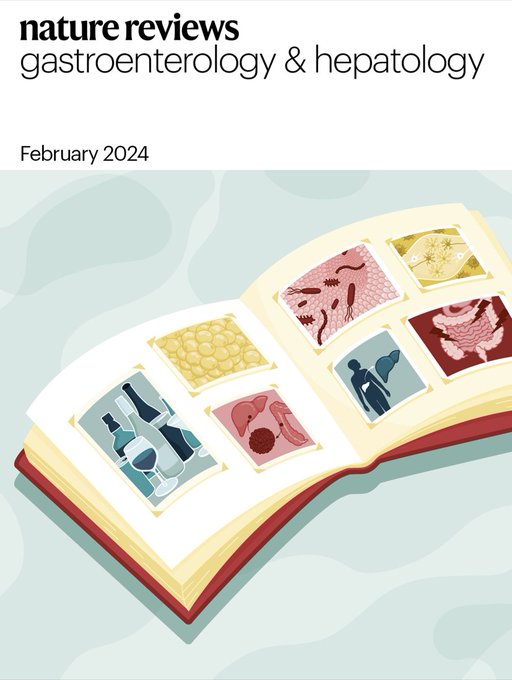Parental diet and offspring health: a role for the gut microbiome via epigenetics.
IF 51
1区 医学
Q1 GASTROENTEROLOGY & HEPATOLOGY
引用次数: 0
Abstract
The effects of diet and nutrition extend beyond individual health: food intake before conception or during pregnancy and lactation can affect the health of offspring. Diet is one of the most powerful modulators of the gut microbiome, influencing gene-environment interactions, with several emerging mechanisms pointing to the microbiome-metabolite-epigenome axis. In this Review, we discuss the effect of dietary changes on the gametes ('gut-germline axis') or in utero ('gut-neonatal axis') that may change the predisposition of offspring to several non-communicable diseases. Examples of diets discussed are those that detrimentally modulate the parental microbiota and lead to epigenetic changes in the progeny, including Western diets characterized by high saturated fat and low protein or fibre intake. We summarize studies using animal models, which suggest that these diets can have long-lasting effects on the offspring microbiome, epigenome and phenotype, particularly across the cardiometabolic and immune systems, and discuss the limitations of current studies as well as future directions for the field. Translational research investigating the benefits of parental dietary interventions before and during pregnancy, mainly using personalized approaches, is needed. This would, in turn, reduce rates of non-communicable diseases in generations to come.父母饮食和后代健康:肠道微生物组通过表观遗传学的作用。
饮食和营养的影响超出了个人健康:怀孕前或怀孕和哺乳期间的食物摄入会影响后代的健康。饮食是肠道微生物组最强大的调节剂之一,影响基因与环境的相互作用,有几个新兴的机制指向微生物组-代谢-表观基因组轴。在这篇综述中,我们讨论了饮食变化对配子(“肠道-种系轴”)或子宫(“肠道-新生儿轴”)的影响,这可能会改变后代对几种非传染性疾病的易感。所讨论的饮食的例子是那些有害调节亲代微生物群并导致后代表观遗传变化的饮食,包括以高饱和脂肪和低蛋白质或纤维摄入量为特征的西方饮食。我们总结了使用动物模型的研究,这些研究表明这些饮食可以对后代微生物组,表观基因组和表型产生长期影响,特别是在整个心脏代谢和免疫系统中,并讨论了当前研究的局限性以及该领域的未来方向。需要进行转化研究,调查父母在怀孕前和怀孕期间饮食干预的益处,主要采用个性化的方法。这将反过来降低后代的非传染性疾病发病率。
本文章由计算机程序翻译,如有差异,请以英文原文为准。
求助全文
约1分钟内获得全文
求助全文
来源期刊
CiteScore
52.30
自引率
0.60%
发文量
147
审稿时长
6-12 weeks
期刊介绍:
Nature Reviews Gastroenterology & Hepatology aims to serve as the leading resource for Reviews and commentaries within the scientific and medical communities it caters to. The journal strives to maintain authority, accessibility, and clarity in its published articles, which are complemented by easily understandable figures, tables, and other display items. Dedicated to providing exceptional service to authors, referees, and readers, the editorial team works diligently to maximize the usefulness and impact of each publication.
The journal encompasses a wide range of content types, including Research Highlights, News & Views, Comments, Reviews, Perspectives, and Consensus Statements, all pertinent to gastroenterologists and hepatologists. With its broad scope, Nature Reviews Gastroenterology & Hepatology ensures that its articles reach a diverse audience, aiming for the widest possible dissemination of valuable information.
Nature Reviews Gastroenterology & Hepatology is part of the Nature Reviews portfolio of journals.

 求助内容:
求助内容: 应助结果提醒方式:
应助结果提醒方式:


